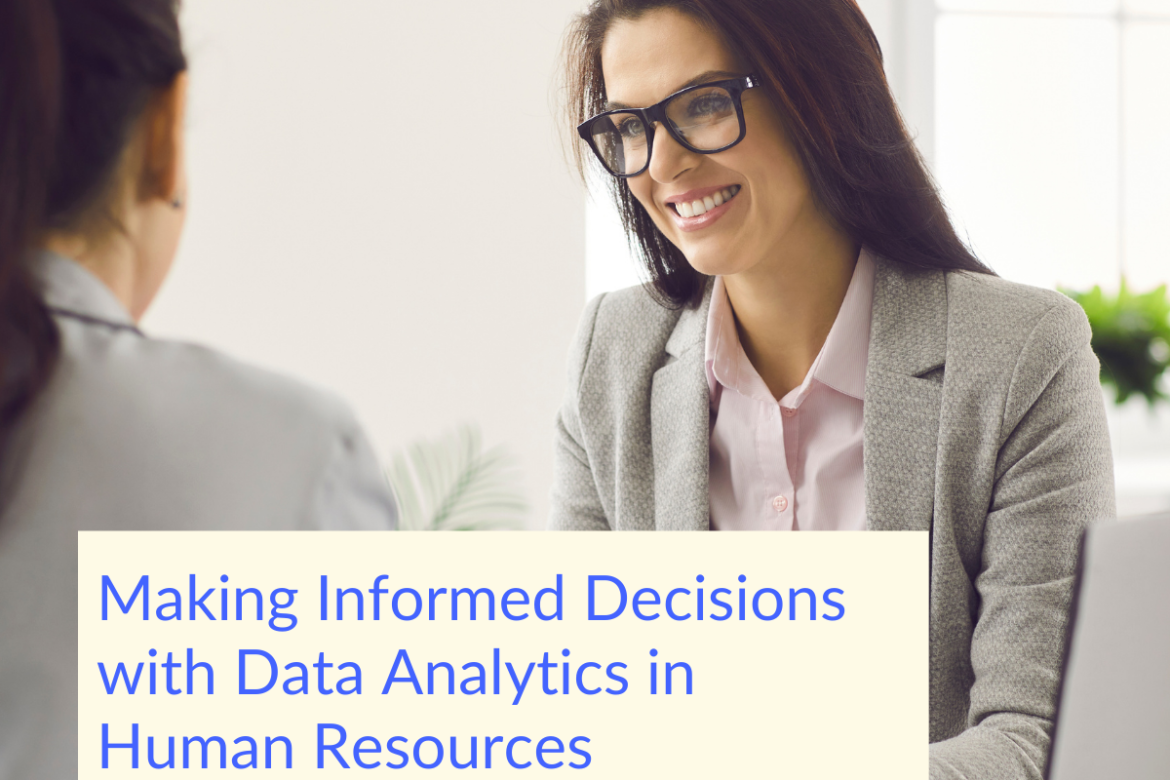Leveraging data analytics in HR can significantly enhance decision-making processes and drive better outcomes. Here are some key ways HR professionals can use data analytics to make informed decisions:
- Workforce Planning: Analyze historical and current workforce data to forecast future talent needs. By understanding factors such as attrition rates, retirement patterns, and skills gaps, HR can develop proactive recruitment and succession planning strategies. Data analytics can help identify critical roles, assess skill requirements, and support workforce restructuring efforts.
- Recruitment and Selection: Utilize data analytics to optimize recruitment and selection processes. Analyze applicant data, screening metrics, and hiring outcomes to identify patterns of success and areas for improvement. Implement predictive modeling to identify the most promising candidates and reduce biases in the hiring process.
- Performance Management: Use data analytics to measure and track employee performance. Analyze performance metrics, feedback data, and goal attainment to identify high performers, areas for improvement, and training needs. Data-driven insights can help managers provide targeted feedback, set realistic goals, and make informed decisions about promotions, bonuses, and performance-related initiatives.
- Employee Engagement and Retention: Analyze employee survey data, turnover rates, and engagement metrics to identify factors impacting employee satisfaction and retention. Use predictive analytics to identify flight risks and implement targeted retention strategies. By understanding the drivers of engagement and retention, HR can develop initiatives to boost morale, address concerns, and create a positive work environment.
- Compensation and Benefits Analysis: Use data analytics to assess the effectiveness and competitiveness of compensation and benefits programs. Analyze market data, internal pay equity, and employee feedback to ensure fair and competitive compensation structures. Identify trends, benchmarks, and cost implications to make informed decisions about salary adjustments, incentives, and benefit offerings.
- Learning and Development: Analyze training effectiveness, learning outcomes, and skill gaps to optimize learning and development programs. Use data to identify high-impact training interventions, measure the ROI of training initiatives, and personalize learning pathways based on individual needs. Data analytics can help align learning initiatives with business goals and improve talent development strategies.
- Diversity and Inclusion: Leverage data analytics to track diversity and inclusion metrics, such as representation at different levels, pay equity, and inclusion survey results. Analyze data to identify barriers, biases, and opportunities for improvement. Use data-driven insights to design diversity and inclusion initiatives, set targets, and monitor progress over time.
- HR Operations and Efficiency: Use data analytics to streamline HR operations and improve efficiency. Analyze HR metrics, such as time to fill positions, onboarding effectiveness, and HR service delivery metrics, to identify bottlenecks and areas for process improvement. Data analytics can help automate workflows, identify cost-saving opportunities, and enhance HR service quality.
- Compliance and Risk Management: Utilize data analytics to ensure compliance with labor laws, regulations, and internal policies. Analyze HR data to identify potential compliance risks, such as wage and hour violations or diversity gaps. Implement predictive analytics to identify emerging compliance risks and take proactive measures to mitigate them.
- Continuous Improvement: Foster a culture of continuous improvement by regularly analyzing HR data, seeking feedback from stakeholders, and monitoring key metrics. Use data to evaluate the impact of HR initiatives, identify areas for refinement, and drive evidence-based decision-making. Data analytics can support HR professionals in making data-driven decisions and continuously enhancing HR practices.
By leveraging data analytics, HR professionals can gain valuable insights, make informed decisions, and drive positive outcomes across various HR functions. However, it’s crucial to ensure data privacy and security while adhering to legal and ethical standards throughout the data analytics process.

